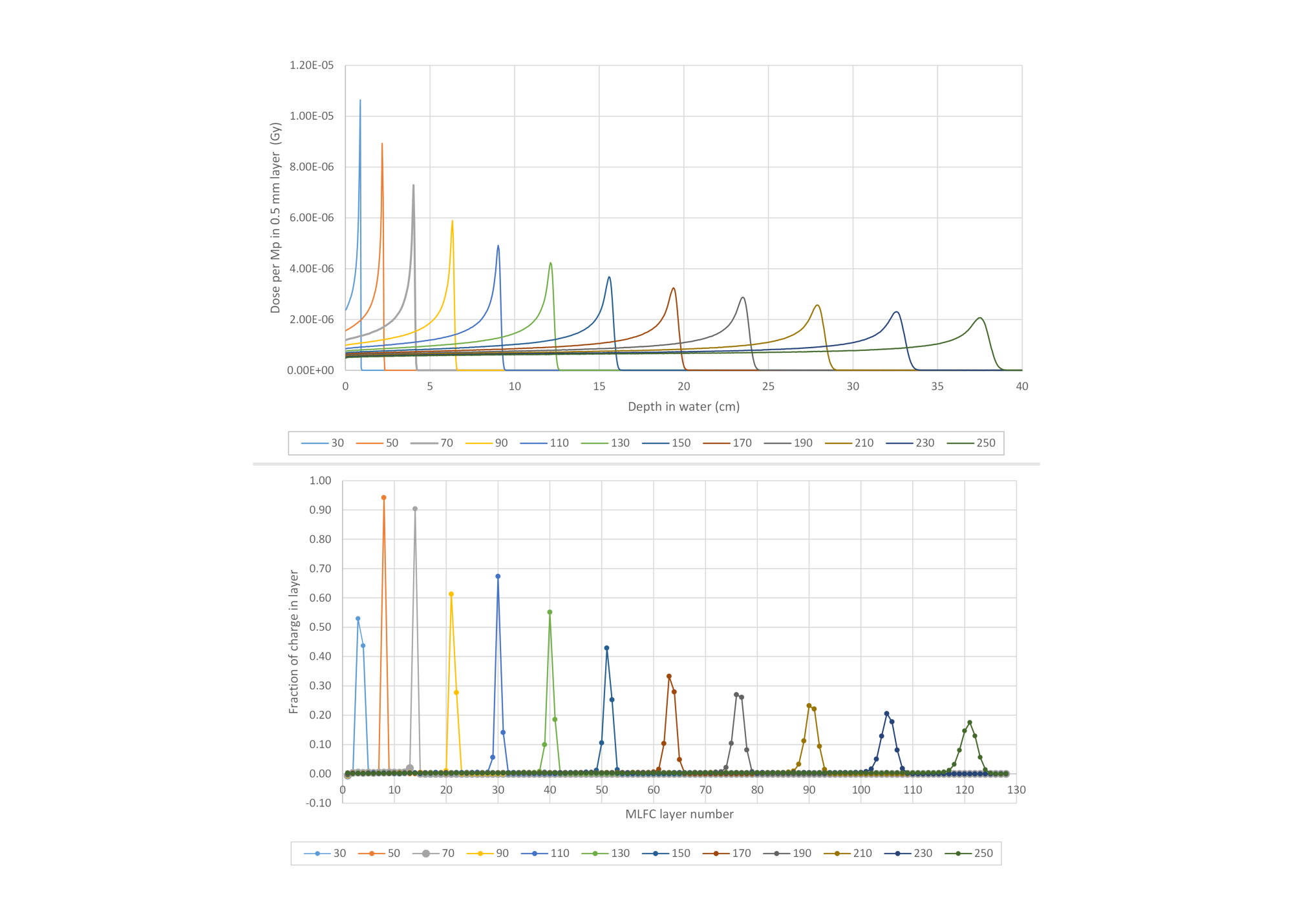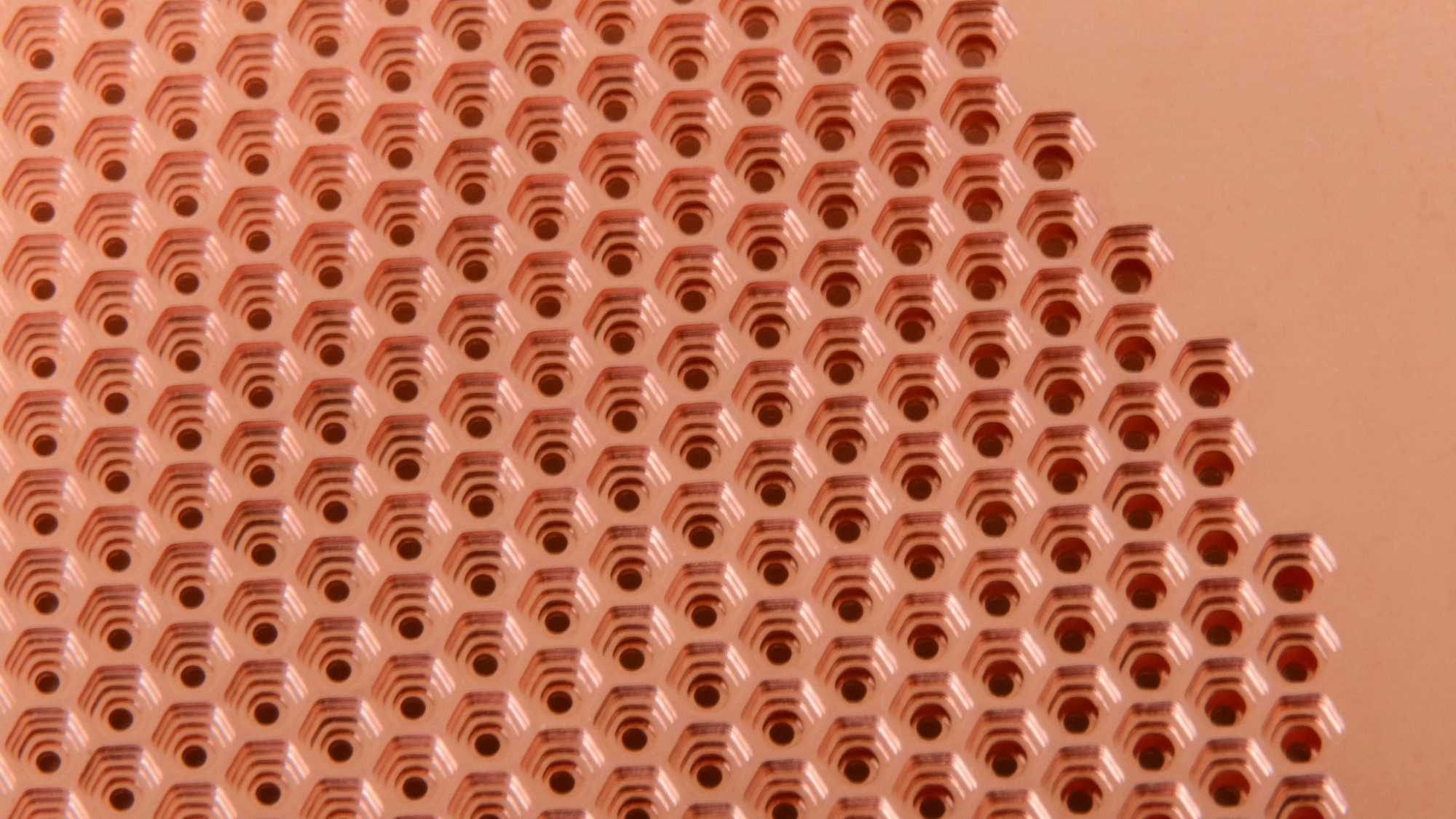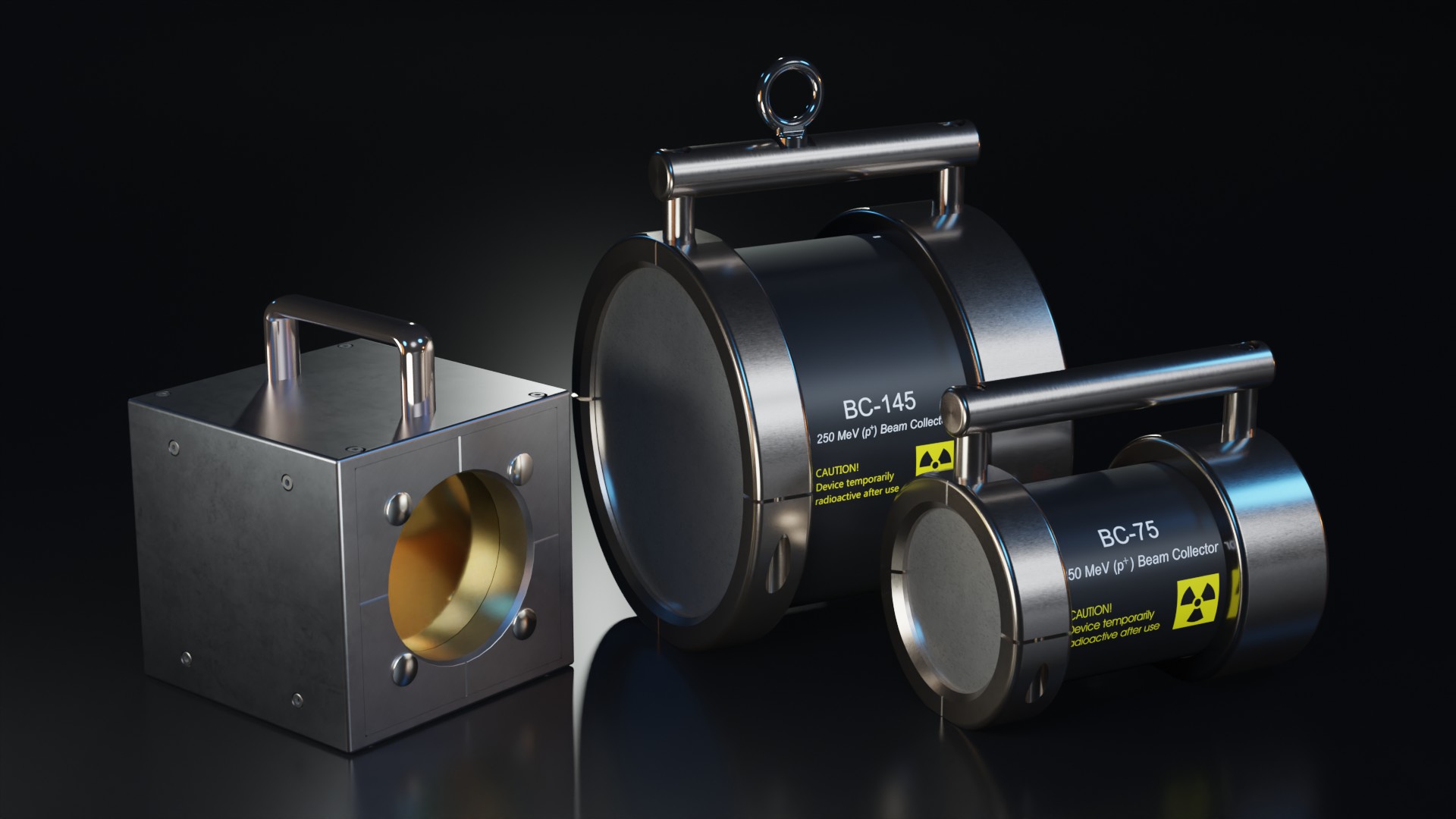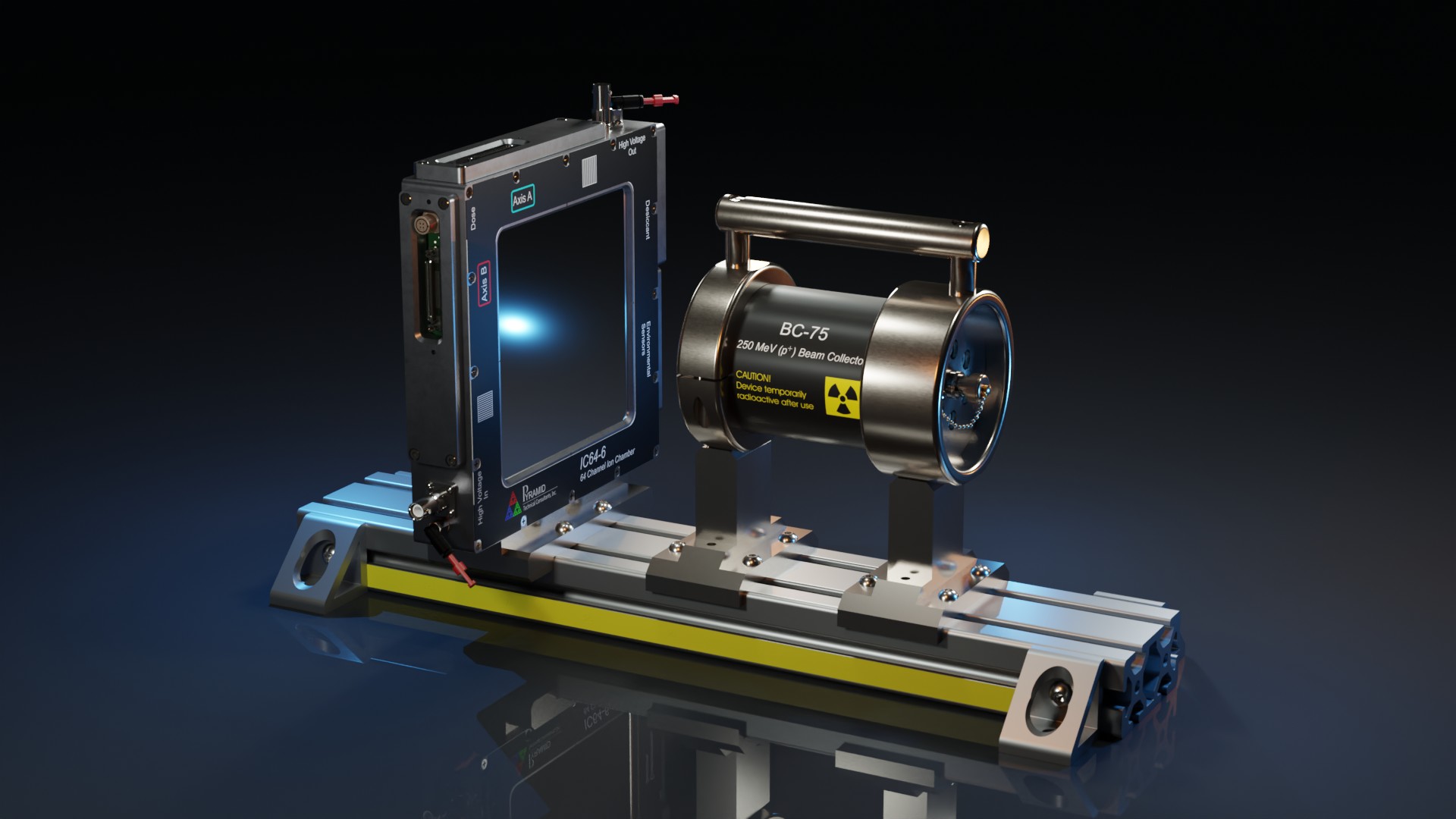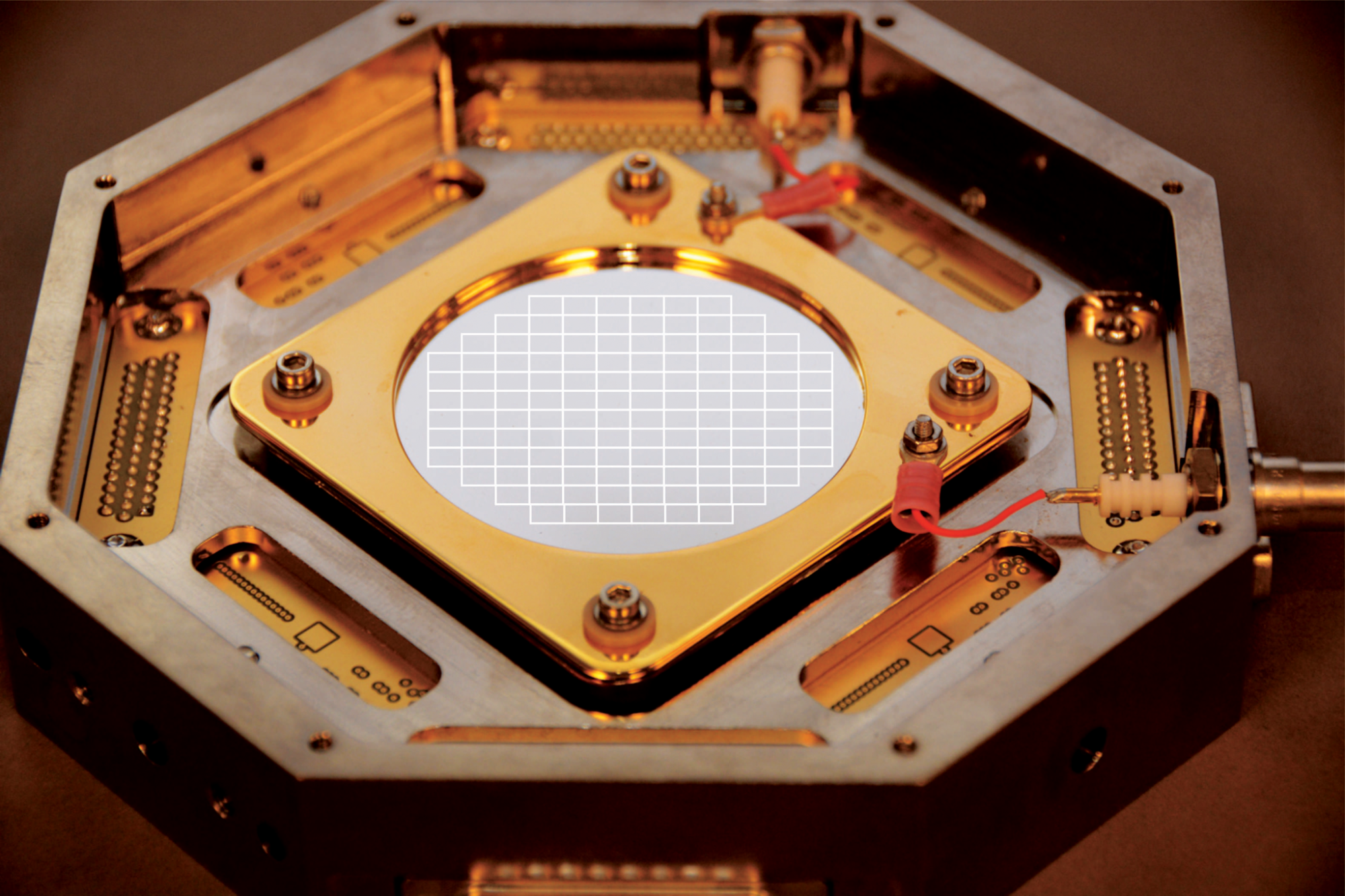MLFC-128 - Multi-Layer Faraday Collector for Particle Energy Measurement
The MLFC-128 is a sophisticated multi-layer Faraday collector that integrates the functionality of a multi-layer ionization chamber and a Faraday cup. This compact device is engineered for simultaneous, stable, and repeatable measurements of beam energy and absolute current, eliminating the need for high voltage or vacuum systems. As a result, measurements remain unaffected by temperature, atmospheric pressure, and recombination effects typically encountered in ion-chamber-based instruments. Rapid beam energy measurements can be obtained in under a minute with a single shot of a beam.
As charged particles traverse a sequence of plates exhibiting well-characterized stopping power, the current is directed to the corresponding inputs of a high-precision multichannel digital electrometer. The patented design facilitates accurate measurements at proton therapy beam currents and extends to currents in the microamp range, suitable for Flash or ultra-high dose rate research.
Key features of the MLFC-128 include independent and absolute beam energy measurement, energy resolution down to 0.1 MeV over 250 MeV, exceptional reproducibility, total and direct beam current measurement, and compatibility with the I128. The MLFC-128 is available in 60, 125, or 250 MeV versions, making it an ideal choice for accelerator commissioning, calibration, routine daily machine QA, and high current research applications.
Patents: US20180056094A1 & US9981146B2
Further Reading
- Gwang-il Jung, Sang-Pil Yoon, Myung-Kook Moon, Preliminary Test of Multi-layer Faraday Cup for Quality Assurance of Proton Beam Energy
- Biniam Tesfamicael, Basit Athar, Ana Bejarano Buele, Valeri Kozlyuk, Dmitri Nichiporov, David A. Watts, Bijan Arjomandy, Technical Note: Use of commercial multilayer Faraday cup for offline daily beam range verification at the McLaren Proton Therapy Center
Downloads
Features
- Independent and absolute beam energy measurement
- Gives information on beam energy spread
- Energy resolution down to 0.1 MeV over 250 MeV
- Excellent reproducibility, stable with time and temperature
- Compact and portable design
- Total and direct beam current measurement
- No vacuum system or HV bias required
- Ready for FLASH research
- Available in 60, 125, or 250 MeV versions
- Works well with the I128 and PBA
- MicroHex energy filters provide excellent resolution for low beam energy
Applications
- Proton therapy pencil beam QA
- Particle accelerator development
- Proton therapy system commissioning
- Charged particle energy spectrum analysis
- FLASH research equipment
Charge vs. Depth Profile
The MLFC is not designed to directly replace water tanks or multi-layer ion chambers that yield depth-dose curves in water. However, its readings exhibit a direct linear relationship with the positions of the Bragg peak, offering essential information for routine daily QA in a cost-effective and user-friendly device.
Beam range in the MLFC's stopping material serves as a direct measurement of beam energy. Additionally, the depth-charge curve profile generated by the MLFC serves as a valuable diagnostic tool for assessing the performance of the particle accelerator and beam transport system.
MicroHex™ Energy Filter
Peak fitting in an MLFC enables the determination of a proton range peak's position to a small fraction of the layer thickness. However, at lower proton energies, the peak narrows significantly, making high-resolution interpolation challenging. To address this issue, an optional micro-structure filter is employed, deliberately introducing a well-controlled range spread and allowing peak fitting down to considerably lower proton energies. The energy calibration curve is computed to account for the filter's effects, while precision machining ensures high reproducibility.
Faraday Cup Collectors
Pyramid Faraday cup collectors modernize charged particle beam current measurements, making the technology accessible and efficient for daily use in labs and clinics.
- Ease of Use: Without the need for a high voltage system or vacuum, these collectors are easy to set up and compatible with various electrometers.
- High Dose Rates: Pyramid's collectors can handle ultra-high dose rates, constrained only by the thermal limits of the device.
- Versatility: These collectors offer solutions for a wide variety of beam types, including high and low current, high and low energy, scanned, electron, and proton beams.
Isocenter Diagnostics Equipment
Our isocenter equipment line expands the capabilities of medical and research institutions by catering to underserved applications and addressing intricate use cases. By providing modular and integrated solutions customized to meet each customer's distinct requirements, we enhance their overall experience and outcomes.
Combinations of detectors and electronics combine into pre-packaged experiments and QA tools. MLFC-128, BC-75, IC64-6, PX-3, F460, I128, and the IC-101 integrate to fit your specifications.
FLASH Ready
Flash therapy stands as a breakthrough in radiation therapy. Our commitment centers on delivering researcher-focused, state-of-the-art Flash therapy instruments, prioritizing accessibility and promoting collaboration within the industry.
For expert guidance and partnership opportunities in upcoming radiation therapy endeavors, engage with our dedicated engineering and sales team team today.
Related Papers
Related Products
Sales & Technical Enquiries:
sales@ptcusa.comService & Returns:
support@ptcusa.comMedia & Others:
contact@ptcusa.com© 2026 Pyramid Technical Consultants, Inc



